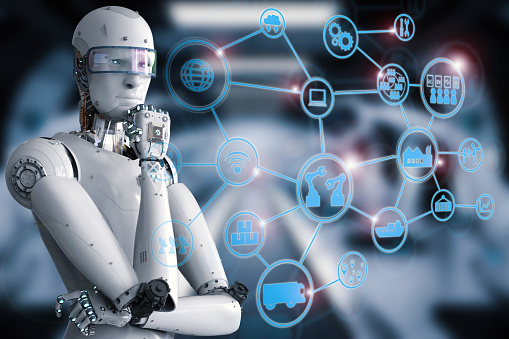Artificial Intelligence (AI) has undeniably become a transformative force in our world, profoundly influencing our society in both beneficial and concerning ways. In this blog, we delve into the intricate relationship between AI and society, dissecting its far-reaching implications on privacy, security, and the very essence of democracy itself.
AI’s Positive Footprint
Enhanced Efficiency: AI-driven automation streamlines various industries, boosting efficiency and productivity, from manufacturing to healthcare.
Personalization: AI tailors experiences and content to individual preferences, improving customer satisfaction and engagement.
Scientific Advancements: AI accelerates research and scientific discovery, contributing to medical breakthroughs and climate modeling.
Privacy in the Age of AI
While AI brings substantial benefits, it also raises significant concerns, especially regarding privacy:
Data Collection: AI systems heavily rely on vast datasets, raising questions about data ownership and consent.
Surveillance: AI-powered surveillance technologies can infringe upon personal privacy, invoking debates on surveillance ethics and civil liberties.
Algorithmic Bias: Biased AI algorithms may perpetuate societal inequalities, particularly in decision-making processes like hiring and lending.
Security Challenges
AI is a double-edged sword when it comes to security:
Cybersecurity: AI augments cybersecurity by identifying and mitigating threats, but it can also be exploited by cybercriminals to orchestrate more sophisticated attacks.
Deepfakes: AI-generated deepfake videos can deceive, manipulate public opinion, and undermine trust.
Autonomous Weapons: Concerns arise over the use of AI in autonomous weapons, potentially leading to uncontrollable and destructive scenarios.
The Democratic Dilemma
AI has a profound impact on democracy:
Disinformation: AI-driven algorithms are used to spread fake news and manipulate public opinion, posing a significant challenge to the integrity of democratic processes.
Voter Manipulation: Concerns about voter manipulation through AI algorithms and targeted political advertising demand increased scrutiny.
Transparency and Accountability: The black-box nature of AI algorithms can hinder accountability in decision-making, especially in the public sector.
Striking a Balance
Balancing the positive and negative aspects of AI in society requires proactive measures:
Ethical AI: Developing and adhering to ethical AI practices is crucial for addressing bias, transparency, and accountability issues.
Regulation: Policymakers must establish clear and comprehensive regulations to govern the use of AI, especially in sensitive domains like surveillance and autonomous weapons.
Education: Raising awareness and promoting digital literacy empowers individuals to make informed decisions and protect their privacy in an AI-driven world.
Final Thought: Navigating the AI Landscape
The impact of AI on society is multi-faceted, offering great potential while also raising complex challenges. As we continue to navigate this evolving landscape, it’s essential to strike a balance that harnesses AI’s potential for societal good, while vigilantly addressing its adverse consequences. The collaborative efforts of governments, tech companies, and individuals are paramount in ensuring AI benefits society without compromising privacy, security, and democratic principles. InnovateTechSystem is a company that is dedicated to innovation and to delivering cutting-edge technology solutions. The future of AI and society is a shared journey that requires careful consideration and collective action to guide us towards a more equitable and informed future.

